24th Feb 2022
John Jenkins Designs: The Trojan Wars
TROY AND HER ALLIES
Traditionally, the Trojan War arose from a sequence of events beginning with a quarrel between the goddesses Hera, Athena and Aphrodite. Eris the goddess of discord, was not invited to the wedding of Peleus and Thetis, and so arrived bearing a gift. A golden apple, inscribed “for the fairest”.
Each of the goddesses claimed to be the “fairest”, and the rightful owner of the apple. They submitted the judgement to a shepherd they encountered tending his flock. Each of the goddesses promised the young man a boon in return for his favour. Power, wisdom, or love. The youth, in fact Paris, a Trojan prince who had been raised in the countryside, chose love, and awarded the apple to Aphrodite.
As his reward, Aphrodite caused Helen, the Queen of Sparta, and the most beautiful of all women, to fall in love with Paris.
The judgement of Paris earned him the ire of both Hera and Athena, and when Helen left her husband, Menelaus, the Spartan king, for Paris of Troy, Menelaus called upon all the kings and princes of Greece to wage war upon Troy.
Menelaus’ brother Agamemnon King of Mycenae, led an expedition of Achaean troops to Troy and besieged the city for ten years because of Paris’ insult. After the death of many heroes, including the Achaeans, Achilles, Ajax and the Trojans Hector and Paris, the city fell to the ruse of the Trojan Horse.
The Achaeans slaughtered the Trojans, except for some of the women and children whom they kept or sold as slaves. They desecrated the temples, thus earning the wrath of the gods.
Few of the Achaeans returned safely to their homes, and many founded colonies in distant shores.
The Romans later traced their origin to Aeneas, Aphrodite’s son and one of the Trojans, who was said to have led the surviving Trojans to modern day Italy.
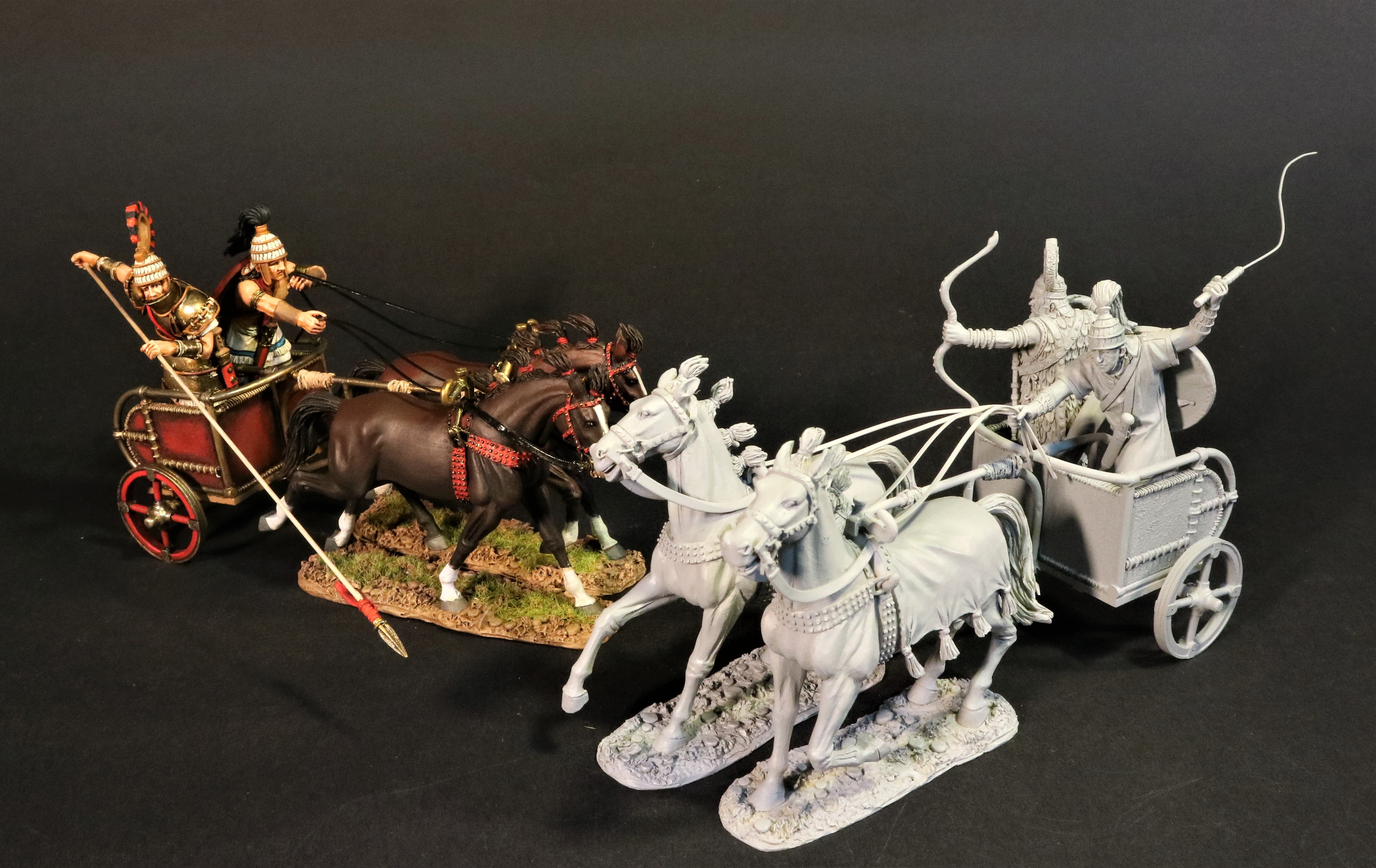
The Trojans, too had their semi-divine heroes and these included Hector (son of Priam), Aeneas, Sarpedon, and Glaucus, just to name a few. They also had help from the gods, receiving assistance during the battle from Apollo, Aphrodite, Ares and Leto.
The War Chariot, was the first mobile fighting vehicle, and seems to have originated in Mesopotamia in the third millennium BC. The highly mobile two-wheeled war chariot, carrying a driver and a warrior armed with a long spear or short composite bow, revolutionized military tactics.
PANDARUS
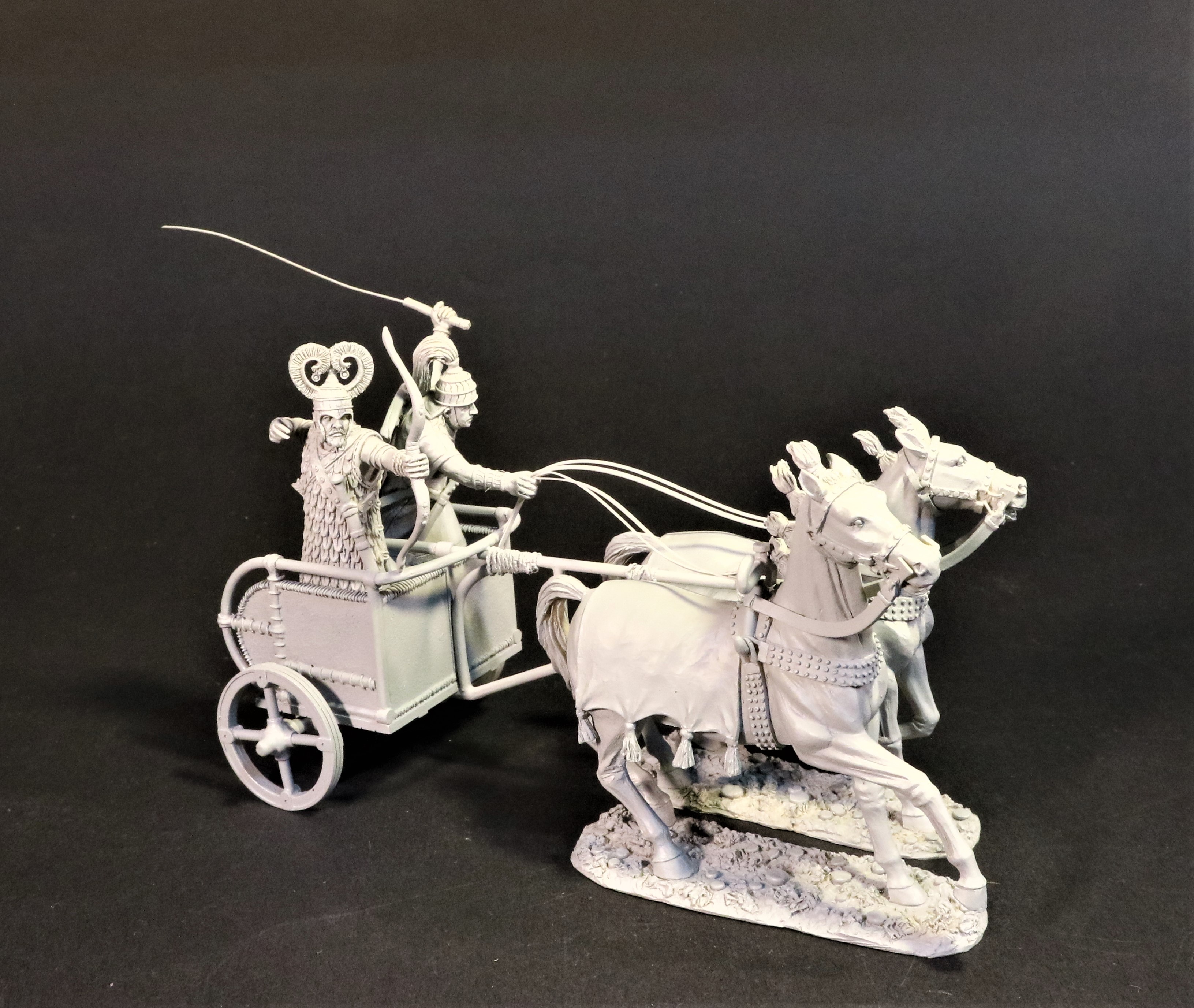
In Homer’s Iliad, Pandarus is a renowned archer and the son of Lycaon. He fought on the side of Troy in the Trojan War and led a contingent from Zeleia.
PARIS
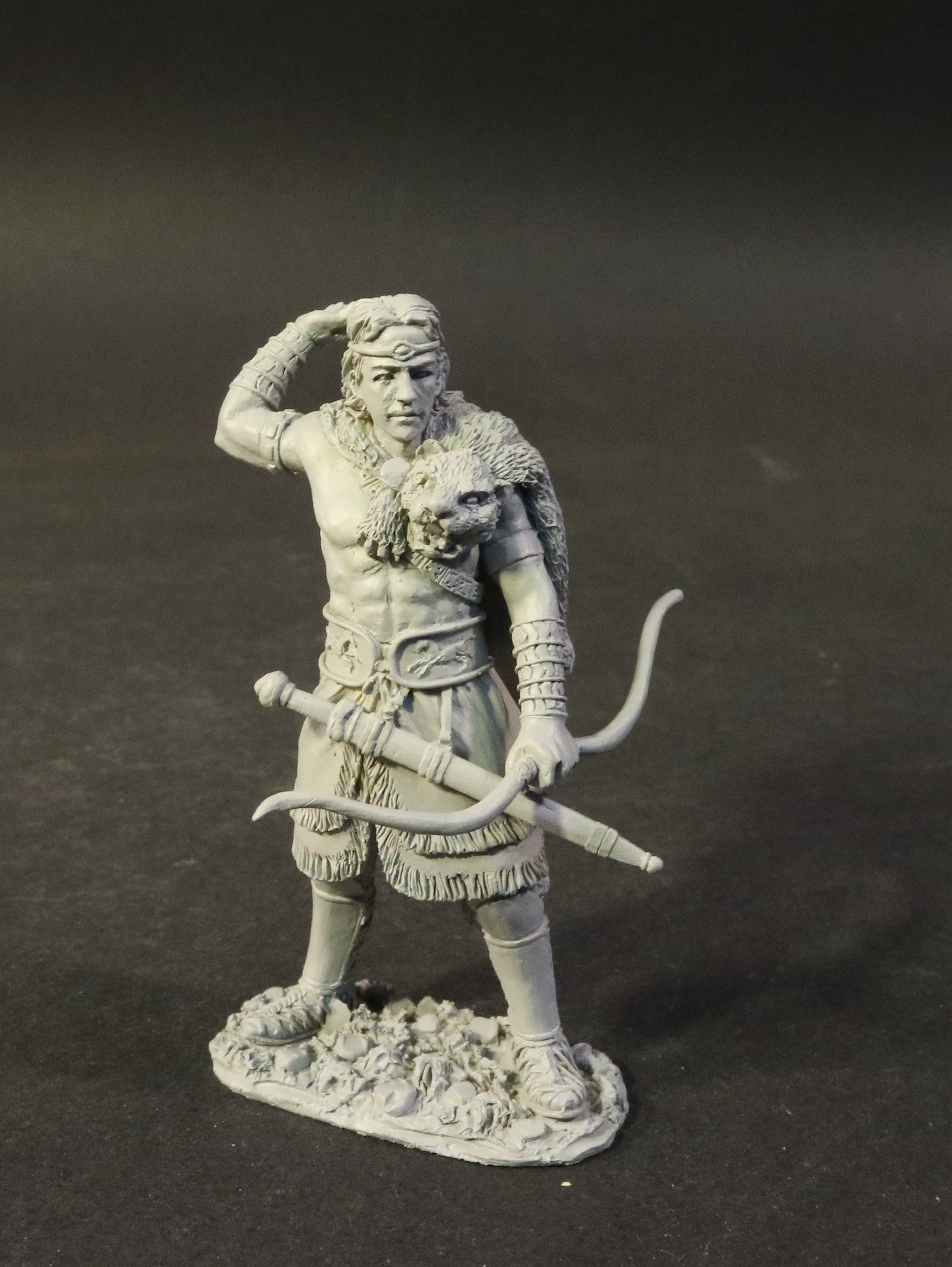
Paris was the son of king Priam and Queen Hecuba of Troy.
He is best known for his elopement with Helen, queen of Sparta, being one of the immediate causes of the Trojan War.
Later in the war he fatally wounds Achilled in the heel with an arrow as foretold by Achilles’ mother, Thetis.
Homer’s Iliad casts Paris as unskilled and cowardly. Although Paris readily admits his shortcommings in battle, his brother Hector scolds and belittles him after he runs away from a duel with Menelaus that was to determine the end of the war. His preference for bow and arrow emphasizes this, since he does not follow the code of honour shared by the other heroes.
Later in the war, after Philoctetes mortally wounds Paris, Helen makes her way to Mount Ida where she begs Paris’s first wife, the nymph Oenone to heal him. Oenone refuses, and Paris dies later the same day.
After Paris’s death, his brother Deophobus marries Helen, and was then killed by Menelaus in the sack of Troy.
DEIPHOBUS
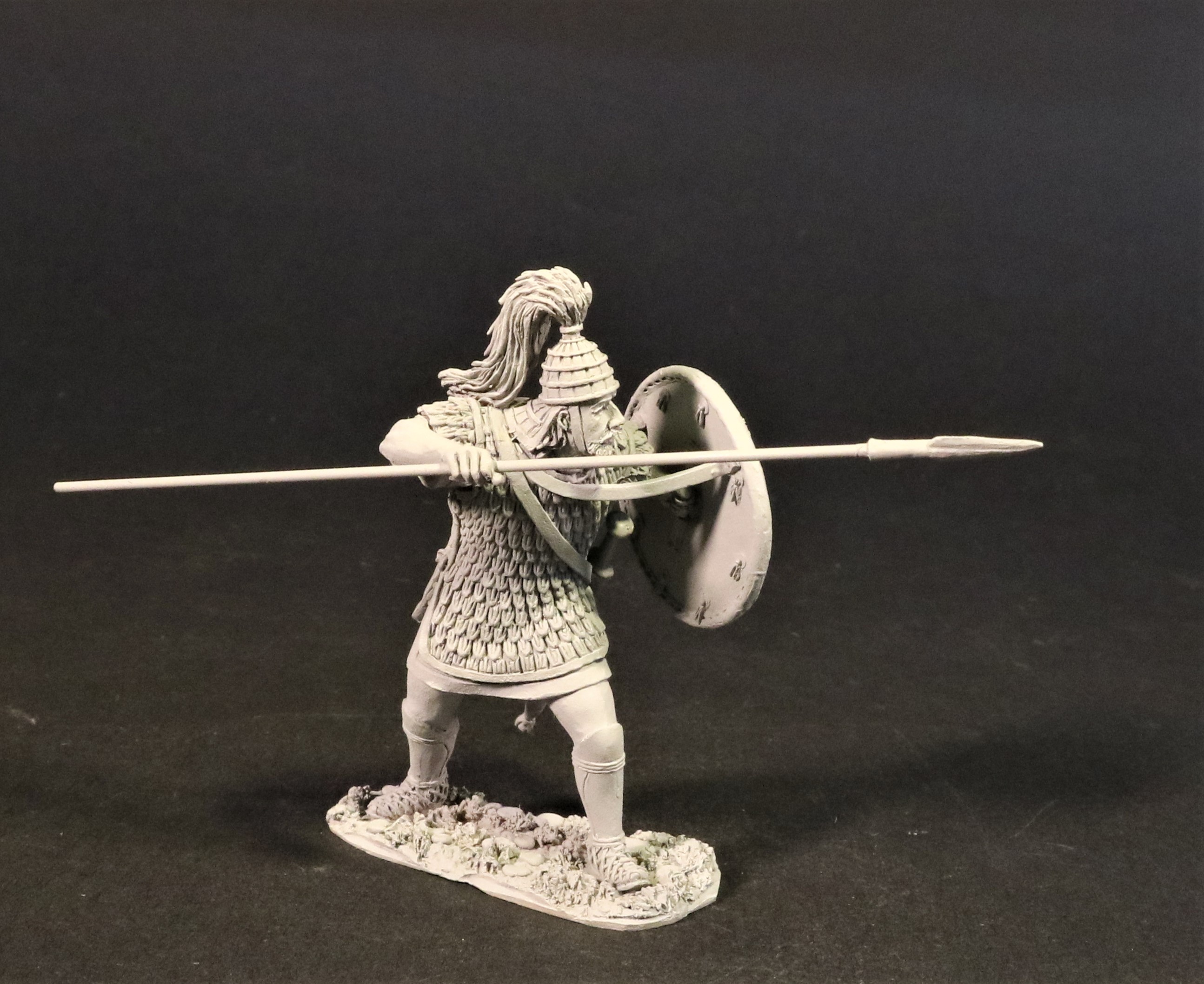
Deiphobus was a son of Priam and Hecuba. He was a prince of Troy, and the greatest of Priam’s sons after Hector and Paris.
Deiphobus killed four men of fame in the Trojan War.
According to the Iliad, Deiphobus along with his brother Helenus, led a group of soldiers at the siege of the newly constructed Argive wall and killed many, and wounded the Achaean hero Meriones.
Some accounts hold that it was Deiphobus and Paris who ambushed and killed Achilles while luring him to their sister Polyxena.
After the death of Paris, Deiphobus was given Helen as a bride for his deeds in the war.
During the sacking of Troy Deiphobus was slain by either Odysseus or Menelaus, and his body was mutilated. There are accounts which state it was Helen who killed him, as she had decided she would rather return to Menelaus.
GLAUCUS
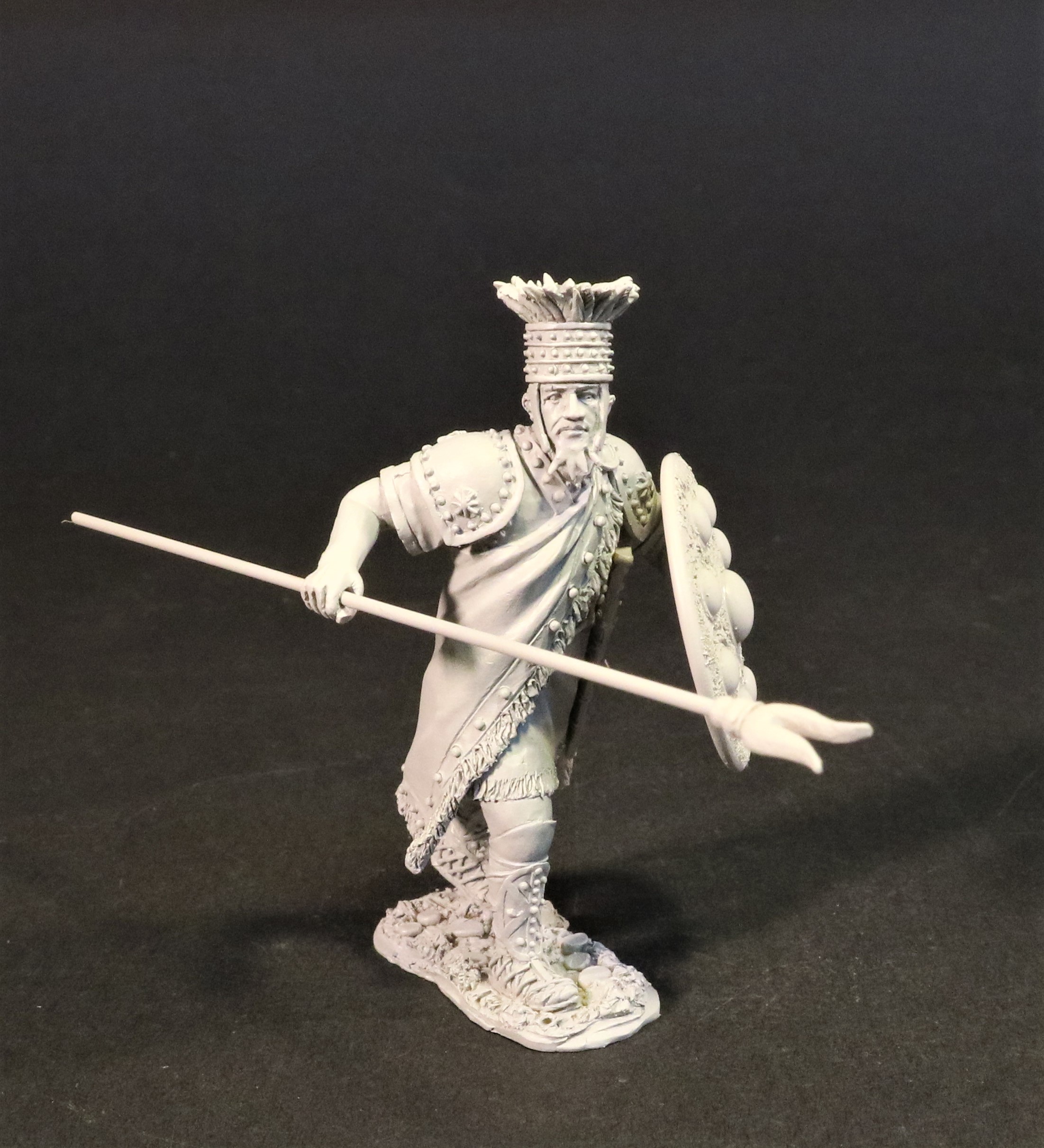
Glaucus, the son of Hippolochos, accompanied Sarpedon to Troy along with his troops from Xanthos. Himself a prominent warrior, Glaucus meets the Greek hero Diomedes on the battlefield, who is leading the Greek forces with the help of the goddess Athena. Glaucus and Diomedes exchange words and upon learning about each other's ancestry, the two warriors decide to not fight each other despite being on opposing sides. Coincidentally both their grandfathers shared a bond of friendship in the past. They continue the tradition of friendship by giving each other their own armour as a gift and part ways as friends.
After the death of Sarpedon, Glaucus, filled with anguish and sorrow over his fallen commander and cousin, reminds Hector of his duty to the Trojan allies. Fierce fighting breaks out around the body of Sarpedon as both sides aim to claim the body of the Lycian commander. Just as Trojans take the armour from his body, Apollo appears, accompanied by Hypnos and Thanatos, to cleanse the body and ease it back to Lycia. Glaucus follows in the steps of Sarpedon by leading the Lycian troops after his death
The new additions to the Troy and her Allies series will be available later this year.
